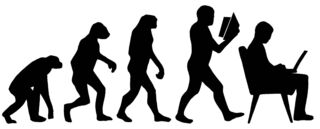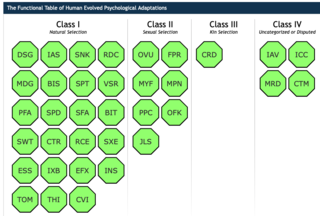Psychology
PsychTable: Collecting Evidence for Evolutionary Psychology
New tool helps psychologists see data about the evolutionary basis of behaviors.
Posted September 18, 2020
The sub-field of evolutionary psychology doesn't have the best reputation within the fields of psychology or biology. There are a few reasons for this. First, this is a relatively young area of study and the scientists working in it are still fleshing out the theoretical framework. Just as it is difficult to build a house without a proper foundation, good scientific work must be grounded in an organizing theory. Evolutionary psychologists are still constructing their foundation while also trying to visualize the house itself—that is—the data they create in their research. As the ideas mature, the interpretation of the data will as well. This is how science works.

Secondly, much of what people think evolutionary psychology actually comes from rather low-brow "pop psychology" articles and social media. Far too often, experimental work that was questionable in the first place, and published in the lowest rung of academic journals, inspires superficial news articles with flashy headlines that leave lasting impressions. It's totally understandable why headlines such as "Strippers make more tips while ovulating" rub people the wrong way, but this doesn't represent the field of evolutionary psychology very well.
Hundreds of serious academic scientists are working diligently to design rigorous experiments that help shed light on why we behave the way that we do. It's tough work, not least of all because the precise molecular mechanisms of human behavior are almost totally unknown. Yet, a body of respectable and repeatable observations is beginning to coalesce.

To help organize the emerging data, two researchers have developed a new tool called PsychTable. This database, completely free and accessible to all, attempts to collect and organize relevant research and information about features called "Evolved Psychological Adaptations," or EPAs. These EPAs include all sorts of psychological phenomena from totally uncontroversial perceptions such as color vision and aversion to bitter tastes, to more nuanced and controversial phenomena such as Theory of Mind, moral disgust, jealousy, and male preference for sexual novelty. The inclusion of an EPA in PyschTable does not imply that it is truly an evolutionary psychological phenomenon. Rather, it's inclusion represents that it is an active area of research.
Importantly, PsychTable is built for collaboration, sort of like a Wiki, but with more restrictions on who and how people can add information. For each EPA, researchers can add published articles that support or refute the evolutionary nature of the supposed EPA. And, other users can "score" each piece of evidence as strong or weak. Collectively, the community adds not just data and information, but their opinions on the strength of each piece of evidence. This captures the collaborative and communal nature of science.

This is a great tool for both researchers and clinical psychologists who are interested to see the evidence for and against the evolutionary nature of certain emotions and behaviors. It's also good for students writing research papers, and just about anyone who is interested in how the field of evolutionary psychology does research and builds evidence for their ideas. As such, it is a welcome addition that will bring more attention—and scrutiny—to this emerging field.
Here is a podcast interview I did with the creators, which goes into a lot more detail about the functionality of the site and what it hopes to accomplish for the field.
You can visit the official website here, and you can visit the prototype here.
References
Balachandran, N., & Glass, D. J. (2012). PsychTable.org: The taxonomy of human evolved psychological adaptations. Evolution: Education and Outreach, 5(2), 312-320.
Glass, D. J., & Balachandran, N. PsychTable. org: A tool for biopolitical researchers, policymakers, and citizens. Politics and the Life Sciences, 1-6.


